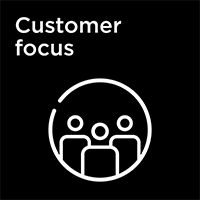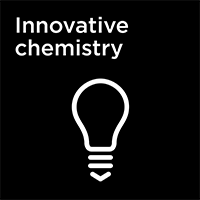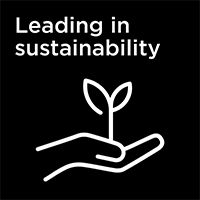Sustainability Shift – Episode 4: E-fuels



Delivering on Clariant's purpose »Greater chemistry - between people and planet.«
This story is an example of how Clariant delivers on its purpose-led strategy.
As the global demand for sustainable aviation fuels (SAF) continues to rise, the supply could face challenges. In the EU alone, SAF blending mandates, adopted by the European Union, will progressively increase the use of SAF from 2% in 2025 to 70% in 2050. Therefore, how can we fast-track the large-scale production of SAF?
Two industry experts will delve into the opportunities and challenges of innovations to scale up electric fuels (also known as e-fuels) and facilitate the gradual decarbonization of the aviation sector. The conversation will spotlight INERATEC's globally pioneering power-to-liquid technology plant and Clariant’s expertise in catalysts, which enhance production efficiency and scalability by converting CO2 and renewable hydrogen into e-fuels.
Experts in this episode

Tim Böltken
Founder and Managing Director
INERATEC
INERATEC is a pioneer in the field of Power-to-Liquid applications. The company supplies sustainable fuels as well as chemical products. Founded in 2016, INERATEC has already implemented industrial-scale power-to-liquid plants at German sites to boost the availability of sustainable fuels and chemicals in various transport sectors such as aviation.

Andres Coy
Business Development Manager, Syngas & Fuels
Clariant
Clariant Catalysts is a global and independent manufacturer of energy-efficient catalyst technologies shaping a sustainable future for the chemical industry. The company helps to decarbonize its customers’ production processes and scale up the transition toward zero-emission chemicals and fuels.
Key terms
Power-to-liquid (PtL) technology: a process that converts electricity generated from renewable sources into liquid fuels, such as synthetic hydrocarbons or hydrogen-based fuels. This technology plays a crucial role in the transition to a more sustainable and low-carbon energy system by enabling the storage and utilization of excess renewable energy in a form that can be easily transported, stored, and used in existing internal combustion engines or other applications that require liquid fuels.
ReFuelEU Aviation Regulation: The main objective of the pioneering RefuelEU initiative, adopted at EU level, is to increase both demand for and supply of SAF, which have lower CO2 emissions than fossil fuel kerosene while ensuring a level playing field across the EU air transport market. In this context, strong incentives are dedicated to eligible technologies such as e-fuels (alongside advanced biofuels).
US Inflation Reduction Act (IRA): The IRA and US SAF Grand Challenge include tax credits and grants for SAF to generate increased interest in fuel production, potentially catalyzing production and investment. The objective is to expedite research, development, demonstration, deployment, and the scaling up of SAF production to reach 35 billion gallons annually by 2050. A short-term target of three billion gallons per year is set as a milestone for 2030.

Welcome to Sustainability Shift, the Clariant Podcast. Join us as we explore sustainability trends in the chemical industry, covering circularity, climate change, bioeconomy, zero waste and pollution, and social value creation. In a series of short episodes, industry experts will share their unique insights, challenges, and innovative solutions, providing a comprehensive understanding of how the chemical industry can play a role in creating Greater chemistry – between people and planet.

